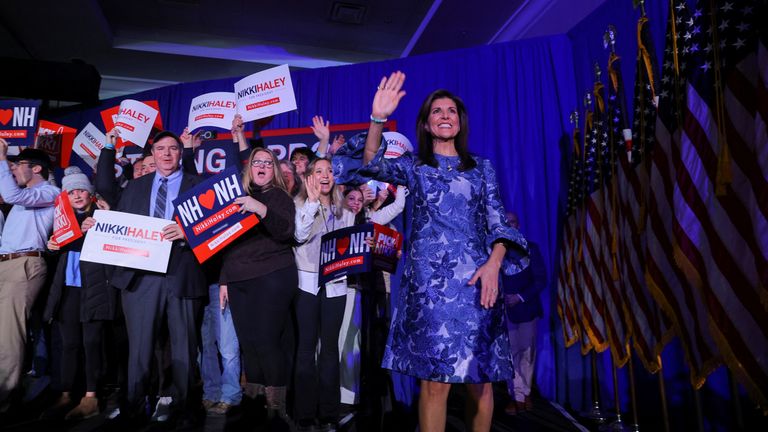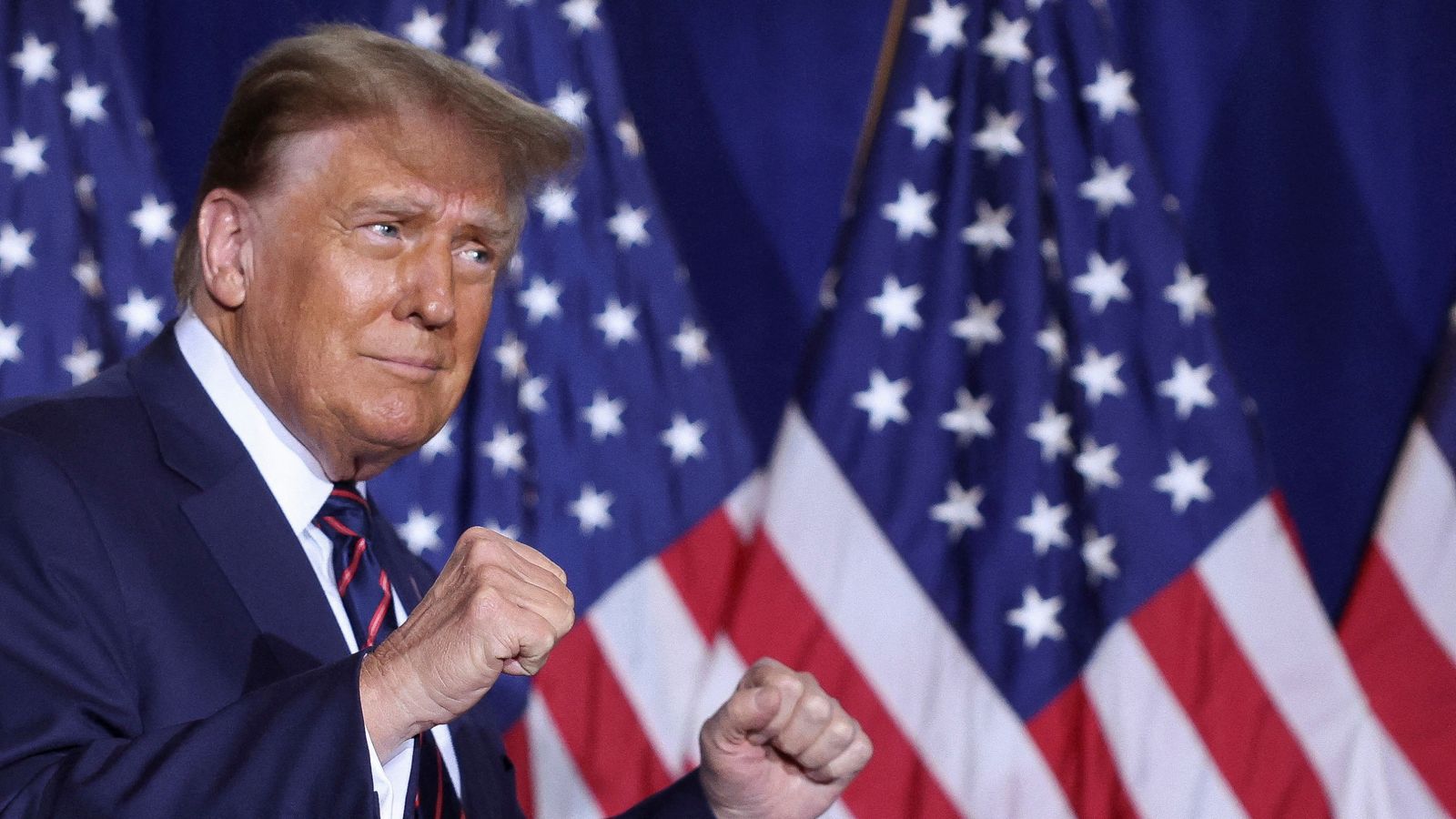
Donald Trump has won the Republican presidential primary in New Hampshire.
The result is a setback for former UN Ambassador Nikki Haley who invested significant time and financial resources into winning the state.
She is the last major challenger in the race after Florida governor Ron DeSantis ended his presidential bid over the weekend.
Speaking after his victory, Mr Trump said: “This is not your typical victory speech, but let’s not have someone take a victory when she had a very bad night.”
He then expressed his disbelief that Ms Haley was “still hanging around” after coming third in Iowa.
Ms Haley said after the result: “This race is far from over. There are dozens of states still to go.”
She congratulated Mr Trump on his victory, adding “he earned it”.
She vowed to take her campaign onward to her home state of South Carolina, which holds its GOP primary next month.
Ms Haley also took a swipe at Mr Trump for appearing to confuse her with former House Speaker Nancy Pelosi and challenged him to a live debate.
She will not compete in a contest that awards delegates until South Carolina’s 24 February primary.
As the state’s former governor, she is hoping a strong showing there could propel her into the 5 March Super Tuesday contests.
But in a deeply conservative state where Mr Trump is exceedingly popular, those ambitions may be tough to realise and a home-state loss could prove politically devastating.
Mr Trump can now boast of being the first Republican presidential candidate to win open races in Iowa and New Hampshire since both states began leading the election calendar in 1976.
By posting easy wins in both early states, Mr Trump is demonstrating an ability to unite the Republican Party’s factions firmly behind him.
Meanwhile, Joe Biden also won in the Democratic New Hampshire primary even though he was not on the ballot.
His supporters mounted a write-in campaign on his behalf to avoid a loss, even though the contest awards no delegates because it violates the national party rules he pushed for.












